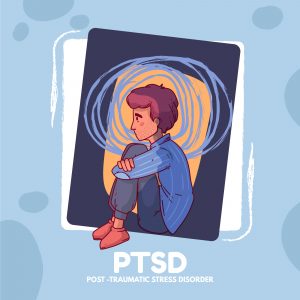JD's Midlife Tools For Living Practices, LLC



Designed by Freepik
After experiencing or witnessing a traumatic event Post Traumatic Stress Disorder or PTSD can develop. It is a mental health condition that can often go undiagnosed or misdiagnosed and affects both men and women.
According to The American Psychiatric Association, the symptoms of PTSD fall into four categories and vary in how severe a person experiences them.
Many people who are exposed to a traumatic event experience symptom similar to these in the days following the event.
For a person to be diagnosed with PTSD the symptoms must last for more than a month and must cause significant distress or problems in the individual’s life and daily functioning. Many individuals develop symptoms within three months of the trauma, but symptoms can appear later on and often persist for months and sometimes years. You do not have to experience all of the symptoms to be diagnosed with PTSD.
There are other conditions alongside PTSD that people who have been exposed to a traumatic event experience like depression, substance use, memory problems and other physical and mental problems.
According to The American Psychiatric Association, “It is important to note that not everyone who experiences trauma develops PTSD, and not everyone who develops PTSD requires psychiatric treatment. For some people, symptoms of PTSD subside or disappear over time. Others get better with the help of their support system (family, friends or clergy).”
“But many people with PTSD need professional treatment to recover from psychological distress that can be intense and disabling. It is important to remember that trauma may lead to severe distress. That distress is not the individual’s fault, and PTSD is treatable. The earlier a person gets treatment, the better chance of recovery.”
If you think you may be experiencing PTSD please know that with treatment you can learn to manage your symptoms and improve the quality of your life!
Are you suffering with undiagnosed PTSD?
Learn more about therapy with me: PTSD Treatment
Contact Me to get your treatment started today!
JD’s Midlife Tools For Living Practices, Holland, MI
Offering Heartfelt care, Compassion and Coping Tools
*From the article:
https://www.psychiatry.org/patients-families/ptsd/what-is-ptsd
